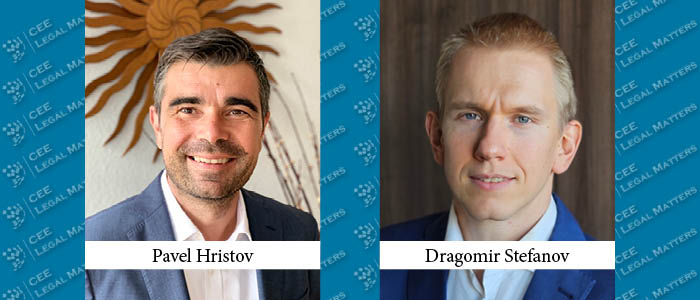Deal activity (both in terms of value and volume) dropped at the end of 2023 and the start of 2024. This is hardly surprising considering the overall unstable international environment and the variety of destabilizing factors at play. Regardless, we see signs of recovery.
Bulgaria’s economy remains stable, with generally positive prospects. In October 2023, Fitch Ratings confirmed Bulgaria’s Long-Term Foreign-Currency Issuer Default Rating at BBB with a positive outlook. Inflation has been contained to 4.7% annually (between December 2022 and December 2023). The 2024 state budget projects a deficit of 3%, GDP growth of 3.2%, and annual inflation up to 4.8%. All that helps Bulgaria negotiate with the ECB its entry into the eurozone as early as 2025. The financial system is healthy and largely profitable. Lending continues without interruption at record levels and at interest rates generally lower than in most of the eurozone countries.
As of March 31, 2024, Bulgaria will join the exclusive Schengen club, and our citizens will be able to travel by air and sea, without border controls, across the Schengen Area.
Inbound M&A
Bulgaria has been increasingly recognized as a home of target businesses that are (globally) scalable, with high-growth potential. This is due to a mixture of beneficial local circumstances and characteristics that position it in a favorable light. To name just a few: a proactive generation of serial entrepreneurs who have created, developed, and sold successful businesses and currently reinvest their earnings into subsequent projects (in the same or often completely different industries and markets) and a mature ecosystem including start-ups, investors (individual angels and sophisticated venture capital and private equity funds), advisers (many law firms play active roles in business and industry associations), highly educated and professionally accomplished diaspora of Bulgarian experts, managers, C-level executives, and businessmen/women from developed markets. As a result, the interest in the market and the dealmaking in 2024 will increase. Local sellers should, however, be more realistic with their valuation expectations because buyers lately are not determined to close a deal at any cost simply due to a fear of missing out.
Many of the factors above led to a probably small in terms of value (the purchase price has not been disclosed) but a very high-profile acquisition of a Bulgarian start-up company by a Big Tech mastodon: In October 2023, Meta, the owner of Facebook and Instagram, acquired Acutance Imaging.
Outbound M&A
Several Bulgarian strategic and financial investors actively look for targets in the SEE region. As an example, Invenio Partners co-invested in the vocational education division of the Serbia-founded LINK Group. At the same time, early-stage VC firm Launchub Ventures invested in the Hungarian-UK AI startup Colossyan as part of USD 22 million Series A funding.
Key Takeaways
It is predominantly a buyer’s market, but to a lesser extent in the industries that still attract major investors and maintain high valuations like healthcare, technology (especially fintech with two very recent acquisitions: Advent International/myPOS and Ingenico/Phos), and their intersection – healthcare tech. Transaction structures and documents have become more balanced and reflect the buyers’ stronger positions and legitimate interest in risk reduction. Sale processes and transaction negotiations take longer, and transaction structures and documents are more complex and detailed, aimed at addressing most of the identified risks. Buyers and their advisers are often reluctant and much less willing to leave such risks not legally covered.
Naturally, some deals are delayed and will potentially be aborted. Bulgarian regulators may cause considerable delays in the closing of signed deals. The Commission for the Protection of Competition has delayed the review of several major cross-border, multijurisdictional transactions that were not large enough to fall within the jurisdiction of the EU Commission (Advent International/myPOS and Emirates Telecom/PPF Telecom Bulgaria). There are precedents where parties filed directly with the EU Commission, bypassing the national authority and obtaining relatively fast and simple merger clearance.
Both sellers and buyers have awakened from the over-excitement typical in the last record-breaking years – we see more pessimism. Unlike in recent times, parties lately enter into negotiations determined to walk away if the terms offered remain unsatisfactory. The room for compromises and concessions has narrowed. For buyers, it is not the end of the world if a deal they pursue does not materialize. Sellers and advisers should be aware.
By Pavel Hristov and Dragomir Stefanov, Partners, Hristov & Partners
This article was originally published in Issue 11.2 of the CEE Legal Matters Magazine. If you would like to receive a hard copy of the magazine, you can subscribe here.















